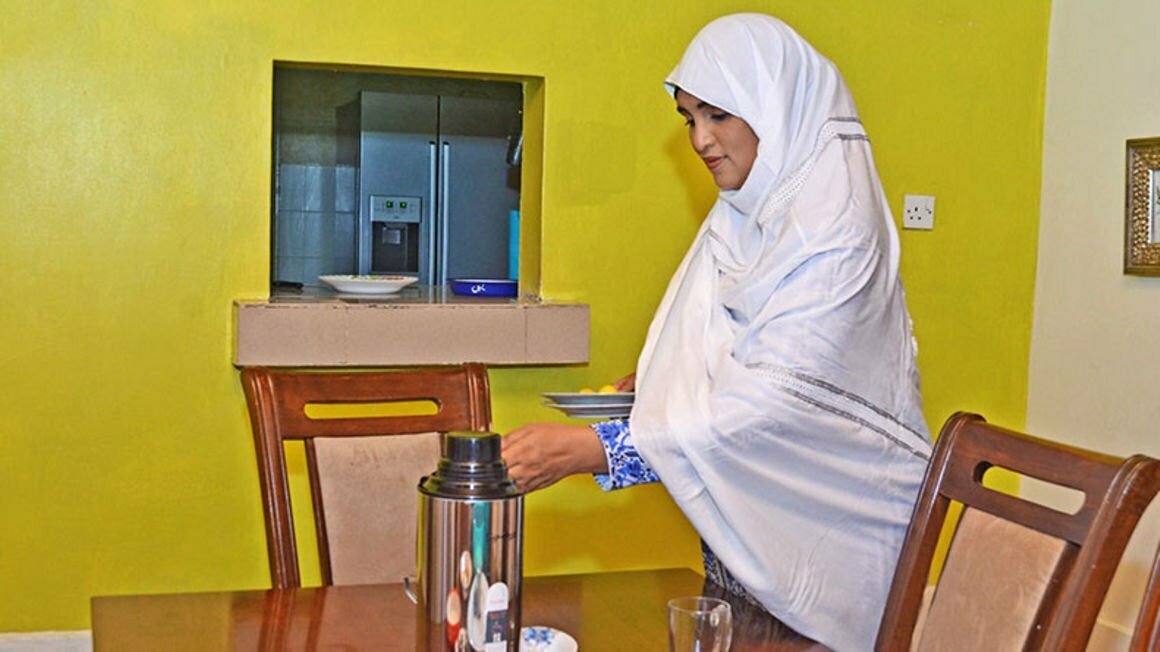For working Muslim women, Ramadhan is a time to strengthen their relationships with God, just like all Muslims, but they also have to tend to a house full of hungry people. It does get a bit hectic and tiring, because they have to devote time to making Iftar (the meal for breaking fast) and Suhoor (the pre-dawn meal) and still go to work.
Some Muslim households have had to re-negotiate how they distribute domestic work and encourage husbands and partners to help out. We spoke to three women on how they juggle work, prayers and meal preparations.

Programme development consultant at Adaptation Consortium
Mumina who has a daughter who is under five years old says that her work expectations are not lowered during Ramadhan. She is expected to deliver the same way she does throughout the year.
“There is no slowing down because you’re fasting, you are expected to deliver what you signed up for,” she says.
Mumina says that she keeps the same energy levels throughout her meetings and she often misses out in the preparation of Iftar because she is working.
“I would love to oversee the preparation of Iftar meals at home every day but sometimes the meetings at work are delayed and I do not make it on time,” she says.
She says that since Ramadhan is a time to work on her relationship with God, it is crucial that she makes it for evening prayers at the mosque.
“The last 10 days are coming and that means that I have to make it to the night prayers {3am to 4.30am} if I want to make the most gains from Ramadhan. But that does not mean I can show up to work late or tired,” she says.
Mumina adds that Ramadhan is the most beautiful time in the Islamic calendar and she pushes herself because the gains are far greater than any other.
CEO of Sisters with a Mission, an organisation that does medical camps
Fauzia who has six children and adopted four others says that her work with a charity organisation remains her main priority during the month of Ramadhan.
“I am grateful to God how easy everything falls into place during this holy month. We plan early and ensure that everything is well taken care of in as far as the charity organisation goes,” she says.
With her older children in college and some in boarding schools, she says it is a little easier to handle all her duties with the little ones around since they already have a routine to follow.
“They prepare for school, come home and do their homework, clean up after school… so by Allah’s grace I am able to do everything just as usual,” she says.
At home, Fauzia says she ensures that she does not cook anything out of their normal meals because she would not want any food to go to waste.
“There so many people who are in need and I make sure that the meals are just what we usually eat. On other days, we might cook bhajia as an addition but that is it. In fact, I do not shop extra during the month of Ramadhan,” she says.
Fauzia adds that while she does have a househelp who makes her work easier around the house, she takes it upon herself to wake all her children up for Suhoor and ensure that they are well fed and ready for the next day’s fast.
“We eat as a family and go for the night prayers together, I also wake them up and check on them before I do my pre-dawn prayers. I enjoy every moment of this month,” she says.
Founder of Orian Outreach and is currently pursuing a Master’s degree in Diplomacy and International Relations
Aminamuna’s plate may be full but she says proper planning before the holy month began has enabled her to fully focus on reflection and purification. Instead of shopping on a weekly basis, she says she prioritised her Ramadhan shopping three days before the holy month began.
“This has helped me and in case we run out of small items like milk my cousins can easily do the light shopping,” she says.
She adds that as much as Ramadhan is about fasting, prayer, and zakat (charity), it is also about reconnecting with God and getting clear about your life.
“Often times, when we’re caught up in our thoughts, distracted by worry or fear, or stuck going through the motions, we can lose focus in our mission and if we’re not careful ourselves,” she says.
Aminamuna’s schedule is the typical 8am to 5pm and her cousins help me out with Suhoor and Iftar meal duties.
“During the weekends, I am able to reconfigure my schedule and prepare Iftar and Suhoor for my family, neighbours and friends,” she says.
Given the help she receives from her relatives, Aminamuna, says her work-life runs smoothly.
“I am very passionate about my work and my calendar is not something that stresses me out when I look at it. Each new day is an exciting adventure,” she says.
Credit: Source link

